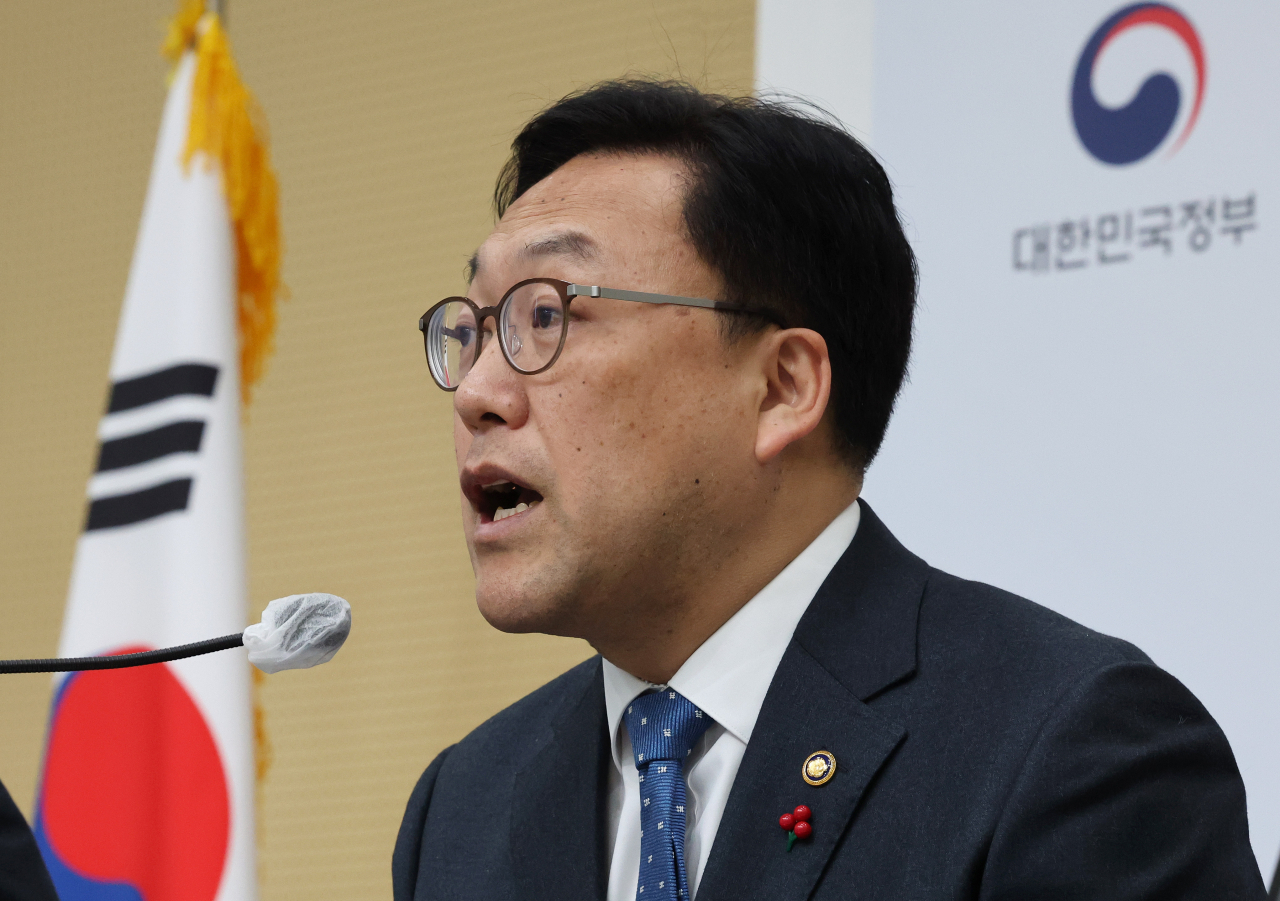 |
First Vice Finance Minister Kim Byoung-hwan holds a press briefing in the central city of Sejong on Thursday. (Yonhap) |
The government will extend intensive policy support to bring inflation down below 3 percent in the first half of 2024 as prices are projected to ease slower than expected, the finance ministry said Friday.
"Inflation is expected to moderate gradually to stay around 3 percent in the first half of this year. The government will maintain the intensive price stabilization scheme involving all ministries' concerns to achieve the 2 percent level at an early date," First Vice Finance Minister Kim Byoung-hwan said during a vice-ministerial meeting on economy and inflation.
According to the government forecast, inflationary pressure is expected to stay around 3 percent for several months to come before approaching the government's 2 percent target by end-2024.
The finance ministry expected annual inflation in 2024 to come to 2.6 percent, slowing from last year's 3.6 percent.
To achieve the goal, the government decided to earmark around 11 trillion won ($8.38 billion) this year for policy responses, such as energy voucher programs and discount coupons for farm produce.
Consumer prices, a key gauge of inflation, rose 3.2 percent on-year in December, the fifth consecutive month that the prices have stayed above the 3 percent level.
The government also plans to announce a set of measures this month to stabilize the livelihoods of people in the run-up to the Lunar New Year holiday in February, Kim added.
In response to the crisis in the Red Sea, the government plans to provide container space along European routes for smaller domestic shipping firms, and make available additional container storage spots at ports in the southern city of Busan and adjacent cities.
The government will set up a center that accepts complaints from shipping firms regarding freight costs and other related issues, and devise measures to ensure the safety of sailors in cooperation with the foreign and defense ministries.
Carriers have rerouted away from the crucial Middle East route due to a wave of attacks by Iran-backed Houthi militants based in Yemen, which has led to longer shipping times and higher freight costs.
"Despite the Red Sea instability, shipping for exports is under way normally, and we've seen limited impacts on trade and energy supplies. But preemptive responses are needed to brace for global logistics disruptions," Kim said. (Yonhap)







